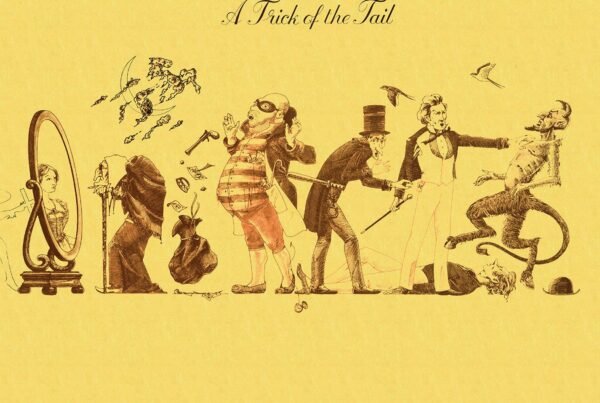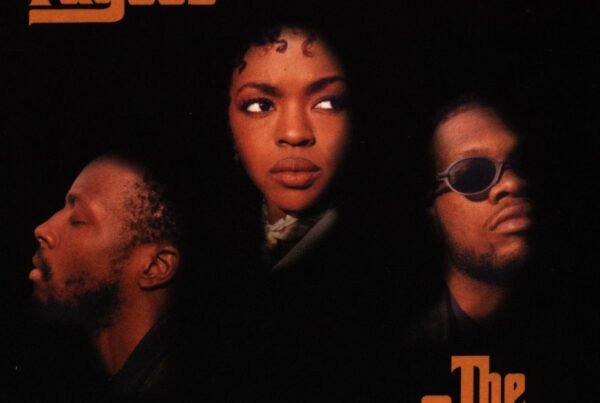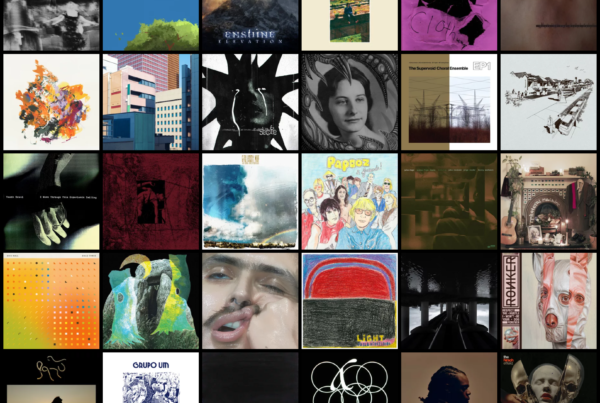Welcome, to Emotional Overtones, the newest feature set out to overcome genre borders and create a more intimate relationship with music! We here at Everything Is Noise think that genres can sometimes be a little limiting, which is why I created this feature. Every episode of Emotional Overtones will feature a certain emotion (for example: Melancholy, Euphoria, Apathy) as its topic and four to five writers will chose records based on this emotion or based on memories that conjure this emotion in connection to this record. There are no limits to genre, length, style, or band; everything is allowed as long as the writer feels it’s right and can explain his stance. This feature will be an ongoing series until for varying emotions of varying complexity.
Today’s episode is the very first one and will feature the complex topic of melancholy. To explain this emotion, the dictionary defines melancholy as: A gloomy state of mind, especially when habitual or prolonged; depression. Of course as it goes with emotions, everyone has a different perspective on things, meaning what might be melancholic to some is not automatically melancholic to others. Though I felt like it’s an emotion easy to relate to while still being up for interpretation and interesting views. These are the thoughts of our writers John, Ash, Tom and Inter on this topic:
John
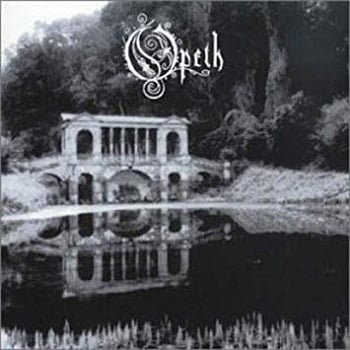
High school was a difficult time for most of us. The beginning of my junior year was pretty extreme. I got involved with a lady, who became ‘the one that got away’. Our fling was short lived, yet intense. She had to move out of state as we were falling for each other. Something else changed my life forever during that time” my buddies introduced me to Opeth. They had two of their albums which we wore out that fall: Morningrise and Still Life.
Though Still Life became my favorite Opeth album, Morningrise became my go-to album to listen to whenever I was depressed. You know, because listening to depressing music when you’re depressed is always healthy. Everything about the album screams bleak and melancholy. The artwork is a black and white photo of The Palladian Bridge at Prior Park in England. Musically, it ranges between progressive death metal with growls and haunting acoustic sections with Mikael’s beautiful clean vocals.
The closing song “To Bid You Farewell” ends with these vocals: ‘Am I to bid you farewell/Why can’t you see/That I try/When every tear I shed/Is for you?‘. Needless to say, this is a great breakup song. Since I got into this album during a depressing stage of my life, I generally gravitate to this record when something bad is going on.
Oh and ‘the one that got away’, her name was Melinda, the main character of Still Life (and also Mikael’s first daughter). Isn’t life funny?
Tom
Navigator is Her Name Is Calla’s third album, and to some, it fell a little flat when compared to their previous release, The Quiet Lamb. The Quiet Lamb is an excellent album that deserves your attention – especially given that Wikipedia crowns it the 12th best post-rock album of all time. Navigator, though unsung, is the melancholy jewel of the band’s discography. Opening with the gorgeous “I Was On The Back Of A Nightingale”, the album swiftly becomes dense and, frankly, difficult.

Lead singer Morris’ yearning vocals swim with sadness throughout, and the half-quiet, half-cacophony backings you’d have previously heard on The Quiet Lamb, there for the first quarter of the album, sink into sparse, dreamlike instrumentals and softly harmonized vocals.
Particularly beautiful are “It Was Flood”, a song that swells and decays through a few lyrics and a lot of slow and ambient instrumental passages, and “Burial”, the vocal highlight of the album. Nagivator throughout, though, combines stunning vocal performances – the ability to sing with angst, but without volume isn’t possessed by many – with beautifully produced music, and brutally frank lyrics such as ‘I don’t have choices, only anger’, ‘Back out on the road when we were young/We thought buildings would be named after us’, and etc. (I am sure you understand the difficultly conveying how stunning the lyrics are out of context – rest knowing that if you like the music, you won’t be disappointed if you start to research the words accompanying them).
This segment nearly didn’t get written because I was deep diving into Navigator again.
Ash
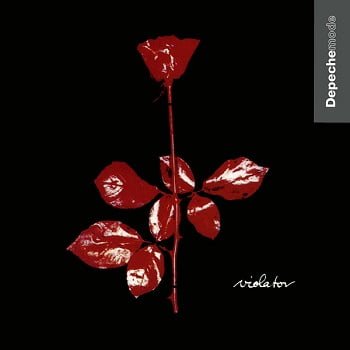
In 1990, the industrial clunk which cemented Depeche Mode’s legacy subsided in favor of something rather more downbeat. Violator emerged to be the band’s deepest and most successful delve into melancholy. The record had a riveting pulse, but every moment was somehow basted with a pale coating of sorrow. No matter what dynamic progression the album followed, it made sure never to fully cheer itself up. David Cahan’s vocals always fell back into the somber. The keyboards, guitars, and electronic effects frequently wobbled into a hazy discontentedness, narrowly skirting the opportunity to chime with a sense of hope.
“Personal Jesus” and “Enjoy The Silence” are just about the most iconic songs of the band’s career, both featuring on this album. But the real melancholy moments are “Waiting for the Night” and “Blue Dress”, two songs so heavy-hearted, that listening to them from start to finish is actually something of a task.
Some may interpret these songs as gentle ballads with a soft tint of beauty. All true. But to me, they evoke a woeful epitaph, the credit roll of a film with a sad ending, the tragic swansong to something that ceased to exist before its time. The feeling is so potent it reverberates across the whole album. Every moment of Violator is tinted with its sadness. Depeche Mode created something masterful, but the emotional minefield, in my case, is a perilous one.
Even if there is a definition for melancholia, I’m pretty sure everyone has a very personal view on that. For me, it always stood for wistfulness, contemplation, thoughtfulness and, at least partly, for isolation. Melancholia can be shared, but since I strongly believe in my first statement, it’s hard to share how exactly it affects you.

When I was confronted with the idea of this article, Dredg’s second album El Cielo was the first which popped into my head. And as expected, there was no easy explanation or reasoning, nor the slightest “framable” idea why this album was my ultimate melancholia choice.
El Cielo is a concept album, highly inspired by Salvador Dalí’s Dream Caused by the Flight of a Bee Around a Pomegranate a Second Before Awakening from 1944. Dalí was highly inspired by Sigmund Freud’s views and insights on dreaming, amongst other symbolic causal chains and one of his usual key elements, Gala. Since Dalí’s wife was suffering under sleep paralysis, Dredg took the nightmarish experience of said disease and the connection this experience had with Dream Caused by the Flight of a Bee Around a Pomegranate a Second Before Awakening to create the concept behind El Cielo.
Besides the actual meaning of the album, it always had a certain melancholia for me, and as often for melancholia, I can’t pinpoint why or where it came from. However, there is quote in “Same Ol’ Road” which lets me feel it physically, and it pretty much pinpoints my deep connections and affection for El Cielo:
‘All you need is a modest house in a modest neighborhood
In a modest town where honest people dwell
Making the cleanest energy for the greenest plants to grow
Richest soil that is drenched with the freshest rain
Then you should sit in your backyard
Watch clouds peak over the tallest mountain tops
Cause they unveil honest opinions about the stars’
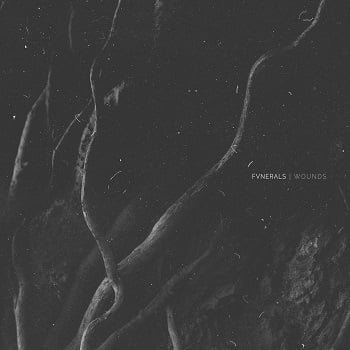
At first I really had to think about what band and album to chose for this feature. It wasn’t an easy exercise finding a band that is meaningful to me, fits the subject, is tasteful and something not yet mentioned. But then it hit me, it had to be Fvnerals. Fvnerals is a project originally from the UK, but now based in Belgium, that blends doom, shoegaze, slowcore, drone and industrial.
As someone who has struggled before, I know the sweet siren song of melancholy and to not give in to it is the real task. This is simulated perfectly by Tiffany Storm’s voice, which is very apathetic yet dripping with this bittersweet sincerity. Most of the time the instrumentals are quiet and slowly creep forward like the flood. But just like melancholy it could crush you at any moment, roaring bass lines, sharp guitar lines in minor key and hissing hi-hats with earthy kick drums pull you into the dark river. Nothing compares to listening to Wounds as much as melancholy itself, in my opinion.
Listen to any song on Wounds, it doesn’t matter; every single one will make you feel.




